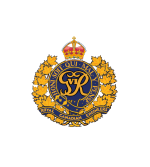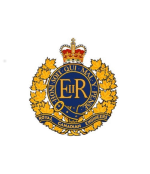Updated 10 January 2025
If you looking for military information on a former service person, Library and Archives Canada (LAC) will generally be your primary source. LAC is responsible for holding the military records of a Service Member after the Department of National Defence has no further need for these files due to the individual's release or death. The Privacy Act governs public access to the documents.
The type of personnel documents that are available online is outlined at: https://library-archives.canada.ca/eng/collection/research-help/military-heritage/pages/military-heritage.aspx
Other Government files can be located through the Search Tool at: https://recherche-collection-search.bac-lac.gc.ca/eng/Home/Search . Use the Advanced Search option. For First World War archives, use “Record Group 150” while “Record Group 24” applies for post-First World War records.
Some guidelines on the availability of documents are:
- Service Files of members who served during the First World War are open to the public.
- Service Files of Second World War fatalities are also open to the public. Online access to these files is free, due to an arrangement between Ancestry.com and Library and Archives Canada. These files are accessible at www.ancestry.ca. A screen will open instructing you to "Create a Free Account." This is different from their normal free ‘trial subscription.’ All you have to do is enter your name and an email address. Financial information (e.g., credit card information) will not be requested.
- Service files of personnel who have been deceased for at least 20 years are available to the public with limitations but those files must be requested through an “Access To Information” request. The files will be screened to protect "Third Party" personal information.
To submit a request for information on a deceased individual you need to submit an Access to Information Request. see: https://www.canada.ca/en/treasury-board-secretariat/services/access-info.... When requesting such information, National Archives requires that you provide the Proof of Death. Proof of Death can be a Death Certificate, cemetery record, newspaper obituary, picture of a tombstone, etc.
If you are uncertain of a Date of Death, several websites can assist:
- Free access to the Ancestry.ca web site is often available at a Public Library.
- If the individual died during war, they will most likely be listed on the Canadian Virtual War Memorial site.
- If the individual was a member of the Royal Canadian Legion, his death may be listed at the site: http://legionmagazine.com/en/index.php/last-post/ .
- If you believe that the individual may have been published in a “Casualty List,” you can search the extensive online archive of newspaper clippings at: http://www.warmuseum.ca/cwm/exhibitions/newspapers/intro_e.shtml.
National Archives will provide what they refer to as their "Genealogy Package" in response to most requests for information on a family member. This package generally comprises copies about a dozen pages of the Service and Casualty Record as well as the Enlistment and Discharge documents.
The Service Record will note postings, promotions, qualifications and other significant personnel activities. Much of these entries will be in a somewhat cryptic notation with hand-written sections and numerous abbreviations. Two good references to help understand these military abbreviations are attached.
Depending on the backlog when you ask, it may take many months for LAC to find the information. If you want more information than is normally included in the "Genealogy Package," be prepared to wait some considerable additional time as screening a set of Military Records for ‘third party information’ requires some time and there are often backlogs. Consider submitting a Freedom of Information request.
If you wish to learn of the member's activity while in a certain unit, there are several general courses of action:
- Official Histories. Read the appropriate volume of RCE/CME History. See: http://cmea-agmc.ca/history-canadian-military-engineers. A copy may be available on InterLibrary Loan from your Public Library.
- War Diaries. War Diaries are held in National Archives in Ottawa and provide the record of the day-by-day activity. War Diaries are lengthy and often not easy to research so one might consider engaging a freelance researcher in the Ottawa area conduct the research for you. National Archives maintains a list of such individuals.
- The War Diaries of the First World War units have been microfilmed and digitized. The digitized Diaries are available online at: http://www.bac-lac.gc.ca/eng/discover/military-heritage/first-world-war/Pages/war-diaries.aspx . Following are good sources relating to Engineer Units of the Canadian Expeditionary Force:
- Army Troop Companies, Canadian Engineers
- Field Companies and Battalions, Canadian Engineers
- Miscellaneous Units, Canadian Engineers
- Pontoon Bridging Transport Units, Canadian Engineers
- Signal Service, Canadian Engineers
- Tramway Companies, Canadian Engineers
- Canadian Forestry Corps
- Canadian Railway Troops
- Entrenching Battalions
- Infantry Works Companies
- Labour Battalions
- Miscellaneous
- Pioneer Battalions
- Tunnelling Companies and Canadian Engineers
- The War Diaries of the First World War units have been microfilmed and digitized. The digitized Diaries are available online at: http://www.bac-lac.gc.ca/eng/discover/military-heritage/first-world-war/Pages/war-diaries.aspx . Following are good sources relating to Engineer Units of the Canadian Expeditionary Force:
- The Second World War Diaries of Royal Canadian Engineer units and headquarters are now available in digitized form online. See the attached guide to access these files. If you experience difficulty, consult: https://www.crkn-rcdr.ca/en/reference-guide-war-diaries-second-world-war
- Unit Histories. The Canadian Military Engineers Museum has an extensive guide for researching a unit. See that guide attached, below. For example, a number of Unit Histories exist in various locations across the country. To determine if one exists for a particular unit, you should submit an inquiry to the CME Museum using the LINK at the bottom of the page: http://www.cmemuseum.ca/index_e/rese_e/rese_e.htm
- Terminology. These references may be of help:
- Abbreviations Used in Service Records
- The Government of Canada’s terminology and linguistic data bank - TERMIUM Plus®
- Military Abbreviations (WW1 to present) Canadian & Commonwealth (Attached below)
- Citations for Honours and Awards. The authorizations for Honours and Awards are recorded in a number of places. Most are the object of detailed documentation of the citation and the application process. Sources of this documentation include:
- Library and Archives Canada.. The official source of the authorization of honours and awards is the London Gazette and/or the Canada Gazette but these can be difficult sources to search online. Documentation of the citation of the award of Honours and awards is also found online at:https://www.bac-lac.gc.ca/eng/discover/military-heritage/military-medals-1812-1969/Pages/search.aspx .
- “Courage and Service.” Citations for Second World War honours and awards are published in the book “Courage and Service” by Clive Law. Copies of this book are generally available on loan from Public Libraries, often through an InterLibrary Loan.
- Korean War. Citations for Honours and Awards authorized during the Korean War assembled by Hugh Halliday can be found at: https://www.blatherwick.net/documents/Korean%20War%20Honours%20to%20Canadians/Honours%20to%20Canadian%20Army%20Awards%20for%20Korea.pdf .
- Other Sources of Citations. An additional source of citations is: https://www.blatherwick.net/
For more assistance, contact:
LCol Ken Holmes, CD (Ret’d)
CMEA History and Heritage
history.heritage@cmea-agmc.ca



